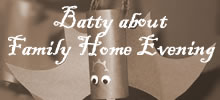 I hope you read some great poetry today. It is Great Poetry Reading Day after all.
I hope you read some great poetry today. It is Great Poetry Reading Day after all.
I love poetry. I know some people who don’t. But I believe that is because they do not understand it. Poetry was my favorite part of English class my senior year of high school. One of the poems we learned was Terence, This is Stupid Stuff by A. E. Housman. It is actually a poem about understanding poetry. In a round about way, he says that the best way to understand poetry is when you can relate to it. Part of it reads:
‘Tis true, the stuff I bring for sale
Is not so brisk a brew as ale:
Out of a stem that scored the hand
I wrung it in a weary land.
But take it: if the smack is sour,
The better for the embittered hour;
It should do good to heart and head
When your soul is in my soul’s stead;
And I will friend you, if I may,
In the dark and cloudy day.
A lot of people try to make poetry difficult by putting some deep hidden meaning in it. But some times it’s just saying what it actually says, like in This is Just to Say by William Carlos Williams
I have eaten
the plums
that were in
the icebox
and which
you were probably
saving
for breakfastForgive me
They were delicious
so sweet
and so cold
Some times a poem is just about eating plums. Poetry should generally never be taken too seriously. There are too many tongue-in-cheek poems for that.
Several years ago I was at my sister’s place and picked up one of the books she had lying around (there is never a shortage of books in the house of any member of my family). It is Love That Dog by Sharon Creech (2001). It is told from the point of view of an elementary student learning about poetry, and learning to love poetry. I can’t read it without getting a tear in my eyes.
One of my favorite examples of unexpected poetry is Skellig by David Almond (1998). It is written in paragraph/book form, but it has a meter to it. It was an unexpectedly wonderful book as well. After reading it I thought and spoke a bit in the meter of it for a while too. Beautiful book.
In college I took my history of civilization classes through the special collections at the library. I absolutely loved that class. We looked at the history of the world through what was written, how, and why. We got to see wonderful examples of some ancient works. For the second semester of the class I wrote my term paper on how World War I had influenced poetry. Life was no longer idyllic, and the poetry reflected that. Dulce et Decorum Est by Wilfred Owen (Ward, 1997) is an example of that change. The poem is about a gas attack and describes a soldier who did not get his gas mask on in time. It ends:
If in some smothering dreams you too could pace
Behind the wagon that we flung him in,
And watch the white eyes writhing in his face,
His hanging face, like a devil’s sick of sin,
If you could hear, at every jolt, the blood
Come gargling from the froth-corrupted lungs
Obscene as cancer, bitter as the cud
Of vile, incurable sores on innocent tongues, –
My friend, you would not tell with such high zest
To children ardent for some desperate glory,
The old lie: Dulce et decorum est
Por patria mori.
Poetry speaks truth. And it can do it in any form it wants to. E. E. Cummings wrote a foreword to his book of poems titled is 5 (1926) that reads:
On the assumption that my technique is either complicated or original or both, the publishers have politely requested me to write an introduction to this book.
At least my theory of technique, if I have one, is very far from original; nor is it complicated. I can express it in fifteen words, by quoting The Eternal Question And Immortal Answer of burlesk, viz. “Would you hit a woman with a child? – No, I’d hit her with a brick.” Like the burlesk comedian, I am abnormally fond of that precision which creates movement.
If a poet is anybody, he is somebody to whom things made matter very little – somebody who is obsessed by Making. Like all obsessions, the Making obsession has disadvantages; for instance, my only interest in making money would be to make it. Fortunately, however, I should prefer to make almost anything else, including locomotives and roses. It is with roses and locomotives (not to mention acrobats Spring electricity Coney Island the 4th of July the eyes of mice and Niagara Falls) that my “poems” are competing.
They are also competing with each other, with elephants, and with El Greco.
Ineluctable preoccupation with The Verb gives a poet one priceless advantage: whereas nonmakers must content themselves with the merely undeniable fact that two times two is four, he rejoices in a purely irresistible truth (to be found, in abbreviated costume, upon the title page of the present volume.)
That poetry can be anything and to anyone and by anyone, I think that is one of the things I love about poetry. I love silly poems. I love long poems. I love short poems. I love love poems. I love deep poems. One of my favorite books is One Hundred and One Famous Poems (Cook, 1958). It has such poems as Ode on a Grecian Urn by John Keats which teaches the truth, “‘Beauty is truth, truth beauty,’ – that is all / Ye know on earth, and all ye need to know.”
Another favorite from One Hundred and One is How Did You Die? by Edmund Vance Cooke. Some of my favorite lines from that one are:
Oh a trouble’s a ton, or a trouble’s an ounce,
Or a trouble is what you make it.
And it isn’t the fact that you’re hurt that counts,
But only how did you take it?Death comes with a crawl, or it comes with a pounce,
And whether he’s slow or spry,
It isn’t the fact that you’re dead that counts
But only, how did you die?
Edward Sill’s The Fool’s Prayer has been a favorite of mine as well. The king asks the jester to pray in front of the crowd so that they may mock him. But the jester is not the fool they think he is. And at the end of his prayer –
The room was hushed; in silence rose
The King, and sought his gardens cool.
And walked apart, and murmured low,
“Be merciful to me, a fool!”
Tennyson (Applebaum, 1992) is another favorite of mine. His The Lady of Shalott has been a favorite since high school. I was also introduced to his poem Ulysses back then, but it has only been in the last 5 or 6 years that I have grown to like that one, particularly the last several lines:
Tho’ much is taken, much abides; and tho’
We are not now that strength which in old days
Moved earth and heaven, that which we are, we are, –
One equal temper of heroic hearts,
Made weak by time and fate, but strong in will
To strive, to seek, to find, and not to yield.
There are so many great poets the world over. And I could easily go on all night. Last week was celebrated the birth and death of William Shakespeare (he’d be 444). He wrote a poem or two in his day.
But I think my mostest favoritest poet of all time is my mom. I love her poems. And I’m glad she taught me about poetry.
Some References
- Almond, D. (1998). Skellig. New York: Dell Yearling.
- Applebaum, S. (1992). Alfred, Lord Tennyson: Selected poems. New York: Dover Publications, Inc.
- Cook, R. J. (1958). One hundred and one famous poems. Chicago: Contemporary Books.
- Creech, S. (2001). Love that dog. New York: HarperTrophy.
- Cummings, E. (1926). Is 5: Poems by e. e. cummings. New York: Liveright.
- Ward, C. (1997). World War One British Poets. Mineola, New York: Dover Publications, Inc.

 I am an educator and PhD. I quilt, belly dance, run, read, and try to grow things. I am a Mormon. I am infertile. I am a daughter, sister, aunt, grand-daughter, friend, wife, and mom.
I am an educator and PhD. I quilt, belly dance, run, read, and try to grow things. I am a Mormon. I am infertile. I am a daughter, sister, aunt, grand-daughter, friend, wife, and mom.














I’m glad you love poetry, My dad is the one who taught me to enjoy it..
Mom